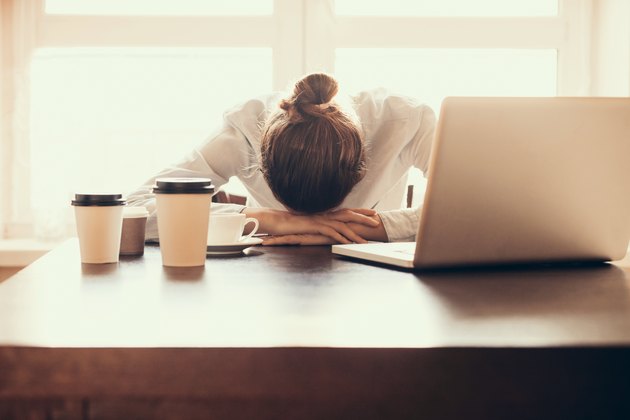There are few things more miserable than waking up after a night of heavy drinking and realizing that instead of just sleeping off your hangover, you’ve got to actually get up and go to work.

Advertisements
Most people take a shower, suck it up and brave the world with a gigantic coffee in hand because that’s what you’re supposed to do, right? Well, not necessarily!
Some medical experts, like this psychologist writing for The Conversation (an independent source of news and views from the academic and research community), believe that staying home and nursing that hangover is not only better for you, it’s better for the your entire office.
In fact, a startling 83 percent of employees admit that being hungover at work impacts their performance; a third claim they “drift off” and are unable to work at their usual pace; and just less than 30 percent suffer from headaches and are unable to concentrate. A study from Norway also found that being hungover can contribute to increased conflicts with other employees and a decrease in job completion.
And it’s no wonder: A hangover is no joke when you consider what it does to your body and your mind. Alcohol is seriously dehydrating, which is one of the main reasons you feel so crappy the day after a booze binge. Vomiting, headaches, dizziness, nausea, lack of energy and high blood pressure are just a few of the physical ways the body reacts. But there are other, lesser-known factors that contribute to the suckiness of a hangover.
For instance, the reason you feel like throwing up is because your intestines and stomach are majorly inflamed, and that sweating is likely due to the fact that alcohol impacts your sleep and also your metabolism. There are also psychological implications, such as increased anxiety, depression and irritability. Not fun at all.
Advertisements
And then there’s the issue of drunk driving. Depending on how much alcohol you consumed the night before and whether your drinking continued into the next day, the physical act of getting to work can be tricky. Driving while intoxicated obviously isn’t safe or legal, and if you get arrested or into an accident (and then arrested) there will be serious repercussions. Even if the alcohol isn’t traceable in your blood, scientific data maintains that hangovers “significantly” impair driving. So do not take that chance.
When you stop and consider that you’re not functioning at 100 percent, you’re causing conflicts with your workmates and you’re possibly putting your and other’s lives at risk, it seems pretty obvious that going to work with a bad hangover is a complete waste of time.
Avoid this situation completely by simply not getting too drunk on a work night — but if you must, be smart about it. Drink plenty of water in between alcoholic drinks, and make sure to eat something so you’re not drinking on an empty stomach.
The Centers for Disease Control and Prevention tallies the monetary damage of hangovers on the United States workforce at a whopping $90 billion per year, which includes both the people who fail to show up after a night of drinking and those who simply cannot function.
So if sobriety is simply unavoidable, it’s up to you to use your discretion and determine whether suiting up and showing up will be more detrimental to your well-being (and everyone else’s) than just staying in bed and working on lightening the load in your Netflix queue.
WhatDo YOU Think?
Do you ever go to work with a hangover? Have you noticed that it impacts your productivity? Do you think it’s OK to call in sick with a hangover?





Comments